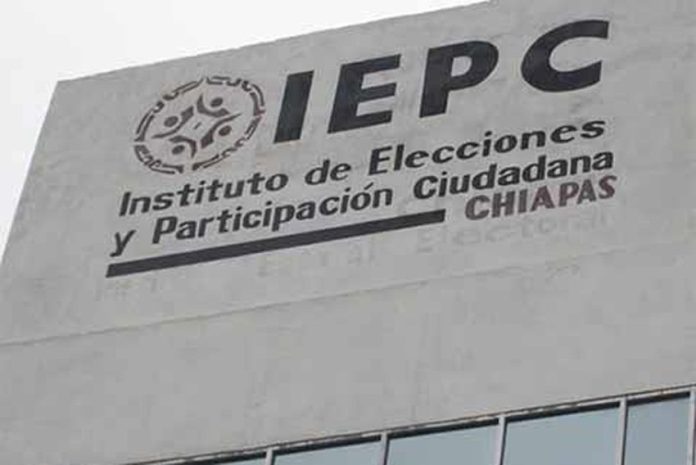Thirty-six women elected to political office in Chiapas in the July 1 elections have resigned so that men can take their places, the state electoral authority has reported.
The Chiapas Electoral and Citizen Participation Institute (IEPC) said it has received resignations from 26 women elected as municipal councilors and 10 women who won office as state deputies via the proportional representation electoral system.
But it warned that it would not allow gender parity rules to be violated amid claims that the women, dubbed “Juanitas,” were forced into giving up their positions as part of a premeditated strategy to install men in positions of power.
“The electoral councilors of IEPC Chiapas urge political parties to guarantee that the women who were registered as candidates in the electoral process gain access, without obstacles, to the proportional representation spaces that by right correspond to them,” the institute said.
Electoral councilor Blanca Parra Chávez pledged that the IEPC would refer the resignations to the relevant authorities and electoral tribunals to ensure that women’s rights are not violated.
“The resignations received at the electoral body are of complete lists of candidates and there are signs that from the beginning it was a mechanism that political parties planned so that these spaces are occupied by men,” she said.
Parra called on women that were elected to not be intimidated or pressured into resigning because it is their right to assume the office they were duly elected to and “we’re going to defend it.”
In an interview at IEPC offices in the state capital Tuxtla Gutiérrez, the councilor told the newspaper El Universal that if there were just one or two isolated cases there would be no cause for concern.
However, what has occurred are “mass resignations,” Parra said, citing Tuxtla Chico as an example of a municipality where all the female candidates who won office have relinquished their positions.
In total, seven women elected to municipal office who represented the Chiapas Unidos Party have quit, as have seven women who won office as candidates for the Ecological Green Party of Mexico (PVEM), five from the New Alliance Party (Panal) and six who stood for the party Podemos Mover a Chiapas.
Parra said that among the municipalities where the resignations have been submitted are Frontera Comalapa, Tuxtla Chico, Mapastepec, Suchiapa and Larráinzar.
All of the resignations submitted by elected state deputies represented the PVEM in the July elections.
Laura León Carballo, an IEPC councilor and president of its gender parity commission, said that political parties’ attempts to circumvent the constitutionally-backed gender parity principle is an expression of political violence against women.
She added that it couldn’t be ruled out that threats and intimidation had been used against the women to force them to give up their positions.
The president of the National Electoral Institute (INE), Lorenzo Córdova, also weighed in on the matter, stating that the replacement of successful female candidates with men is “unacceptable in a democratic context” and that “it constitutes a regression to the principle of [gender] parity and inclusion.”
He added that the INE didn’t have jurisdiction to intervene in the cases but would closely monitor the outcome of what he described as “acts of political violence against women.”
However, a PVEM official responsible for electoral administrative matters rejected the claim that women had resigned so that men could take their places.
Instead, Olga Mabel López said, four female candidates elected via proportional representation had also won positions by direct election and had given up the former role because they can’t occupy two positions.
“No woman is being removed,” she declared.
Source: El Universal (sp), Milenio (sp)
